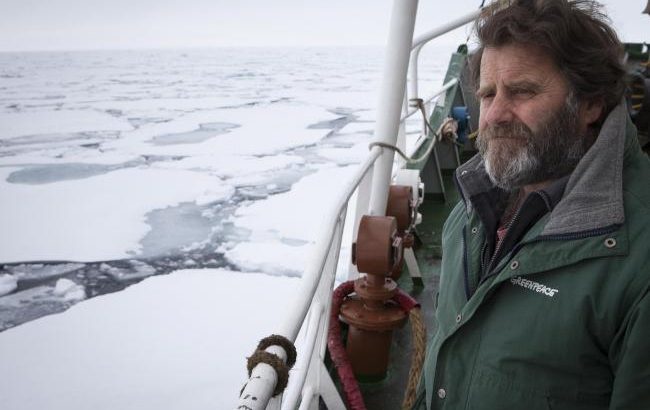Peter Hegarty
Greenpeace Captain
by Peter Willcox with Ronald B.Weiss (Sandstone Press, £9.99)
In his memoir, seafarer Peter Willcox drolly recalls the 30 years he has devoted to creating ‘chaos and spectacle’ to heighten awareness of destruction of the environment.
Activism is dangerous. He was on board the Rainbow Warrior in Auckland harbour in July 1985 when two French mines exploded on the hull, sinking the ship. Divers later found the body of photographer Fernando Pereira, a father of two young children, in a water-filled cabin. It transpired that President Mitterand himself had approved the attack.
Nuclear tests
In one of his best chapters Willcox describes a visit to Rongelap, an island contaminated by radioactive fallout from American nuclear tests on nearby Bikini Atoll.
The Americans had deliberately exposed the Rongelap population, seeking to improve their understanding of the affect of radiation on the human body. Children born there after the tests were hideously deformed, some without facial features or a skeletal structure.
For decades the islanders vainly petitioned the US government to move them to a cleaner island: “No-one else was going to do it, so we had to.” Willcox and the crew moved the population of 350 people to their new home, the nearby island of Mejato, before sailing on to Auckland.
‘Operation Exodus’ was one of his many achievements. Russia agreed to desist from dumping radioactive waste at sea after Greenpeace intercepted and filmed a decrepit vessel spewing radioactive water into the Pacific.
France agreed to end atmospheric – but not underground – nuclear tests in the South Pacific in the face of world revulsion at her heavy-handed treatment of Greenpeace protesters. Willcox believes that Greenpeace actions in Peru hastened the end of whaling off the Peruvian coast.
The Arctic is where the battles of tomorrow will be fought. The ice is thinning, the far north will soon be ice-free during the summer months, and the resources of the region are now exploitable. Russia’s oil and gas companies, with ample experience of drilling in inhospitable environments, and with the Arctic on their doorstep, have a head start on their competitors.
What worries campaigners is the near-impossibility of cleaning up an oil spill in a remote region, especially in the permanent darkness of winter. That Russia, a country with an appalling record on the environment, should be leading the scramble for resources, is a particular concern.
The indefatigable Willcox spent two months in Russian prisons after leading an attempt to hang a banner on an oil-rig in the Barents Sea in September 2013. He won’t be the last unwilling guest of the Russian government.


 Peter Willcox
Peter Willcox 